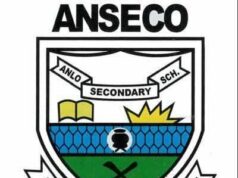Since the coming into office of the Akufo-Addo-led Administration, we have witnessed certain developments that have shaken the very foundations of people’s confidence and trust in the whole financial system. Actions aimed squarely at the indigenous and home-grown banking sector have ushered in a new age of financial exclusion for the already squeezed Ghanaian.
Among others, we have seen the licenses of 9 universal banks revoked and others merged. Finance Houses and Savings and Loans Companies have also had their licenses withdrawn; and 347 microfinance and 39 micro credit institutions have been shut down. Indeed, we are told that the Central Bank has so far closed 420 financial institutions it deems insolvent.
This crisis has created major problems in the banking and financial system, including deepening the already widely held mistrust and lack of confidence in the system by many people. And there appears to be no end in sight.
It has also dealt a significant blow to the indigenous banks because such institutions usually have no external support to count on. Whilst this development may appear as a threat to only businesses, it is in fact a threat to our national security. Indeed, as has been widely touted, “ownership of capital matters, the ethnicity of capital is real and the banking sector and financial system of a country are part of its national security”.
The developments in the banking and financial system, and the matters arising, call for grave concern for all who have been affected by this financial sector turmoil, especially because it is an issue that threatens our country’s national security.
We must all be worried about the businesses that have collapsed, the licenses that have been revoked, the massive job losses, the hardship this is causing to some customers, and the trauma of having their lifetime savings in jeopardy.
There is also the consequences on the health and well-being of customers and workers, including honouring their obligations as parents by providing for their families and dependants, paying school fees of their wards and paying rent in order to give their families decent and safe places to lay their heads, among others.
These are trying times indeed and as leader of the main opposition party, I cannot look on unconcerned; we cannot look on without our voices being heard and without being on the side of the many people who may be agonising over this situation because they lost their capital, investment, their life time savings, their jobs, their businesses or the fear that their deposits are in jeopardy and are therefore uncertain about their future and that of their families.
Those who have been hardest hit by these unfortunate developments include especially market women, artisans, cocoa farmers and the many operators in the informal sector of the economy whose hard work, and yet modest earnings oil the wheels of our national economy.
In all, it is estimated that more than 20,000 people have directly lost their jobs as a result of the financial sector shutdowns. The numbers could be even higher when you take into account the indirect job losses occasioned by this crisis. Apart from the livelihoods lost, the resolution cost of nearly GH¢20 billion as we are told ultimately becomes a burden on the Ghanaian taxpayer. This comprises the GH¢12 billion for the universal banks, GH¢7 billion expected to be used for the Savings and Loans Institutions and Finance Houses, and GH¢1 billion for the Microfinance institutions.
Current provision made for this debt in the mid-year review budget amounts to about 3% of GDP and will together with fresh debt incurred in the Energy sector, put the fiscal deficit above 11% and move Ghana closer to the debt distress threshold of 60% debt to GDP even with rebased figures .
There are many valid questions to ask, including whether the revocations and mass closures were the best options under the circumstances, or whether there were no other options available to resolve the problem. What part did debt owed by Government to its contractors and suppliers play in the insolvency of these financial institutions? To what extent did the utterances and posturing of the Central Bank create panic that resulted in a run on many of these financial institutions?
It is trite knowledge that no bank or financial institution, no matter how big, can survive if there is a rush on investments especially when induced by the pronouncements of policy makers or regulators.
What role did the macro economic challenges and energy sector crisis of the past several years have on the slide into insolvency of some of these banks? What due diligence did the Bank of Ghana do on the situation before commencing the closures?
This is not the first time Ghana has faced a crisis in our financial sector. The Financial Sector Adjustment Programme (FINSAP) during the 90s used the Non-Performing Assets Recovery Trust (NPART) as a vehicle to offload the toxic liabilities of the banks and clean out the financial sector. During the world financial crisis, it was not uncommon that many countries, because of the strategic nature of their domestic financial institutions, provided bail outs in exchange for equity in order to prevent a chaotic meltdown of the sector. As it is, the Central Bank chose the path of a chaotic resolution and has created grave social and commercial dislocation, with an accompanying huge debt that Government has no clue how to even begin paying down.
The Policy Working Group on Finance and Economy that I set up recently is studying and analyzing the situation with a view to coming up with pragmatic steps that we can employ, not only to restore the confidence of our people in the banking system, but also ameliorate the suffering imposed on the customers and staff of these financial institutions caused by the poor handling of the crisis by this administration.
The group will also come up with plans for restoring the indigenous stake and participation in this all-important sector. We will consider ways to promote greater financial inclusion and innovation, and will consider setting up an appropriate vehicle to regulate microfinance and allied sectors in particular, while developing the rural banking system and enhancing the role of the ARB-APEX Bank’s supervisory structure. A future NDC administration will assess the effectiveness of the regulatory architecture and identify gaps as well as needed reforms to promote greater financial stability and growth. We will also consider temporarily freezing new bank licenses for a period of time while encouraging as many banks as possible to list on the Ghana Stock Exchange within a reasonable time frame.
We will look at the Receivership and Liquidation framework in the Act to make it easier for the Administrator to reverse a decline rather than making it automatic for an insolvent bank to be liquidated.
While at it, we call on the Akufo-Addo administration to lift the veil on the beneficial shareholders of the Ghana Amalgamated Trust and to curb its supposed ‘predatory’ bail out assault on the remaining banks, which include state-owned banks.
Meanwhile, I wish to assure all those who have suffered in one way or the other as a result of the approach being used by the government that we are standing by you and we are working very hard to take over the governance of our beloved country in 2021 and to bring certainty, financial security, progress and prosperity to all Ghanaians, irrespective of their tribe, family or political affiliation.
By: citinewsroom.com























